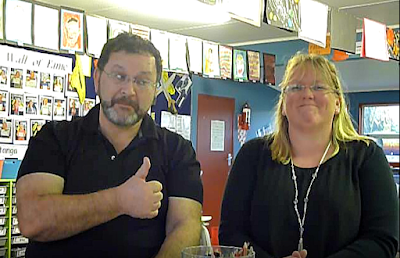Week 13 - LEADERSHIP - Gamification in Leadership
Gamification
Gamification is a concept, which is not exclusive of education. Some researchers generically defined it as “the use of game design elements and game mechanics in non-game contexts” This broad definition has been further refined to reflect the most common objective of gamification: increase user experience and engagement with a system. It is important to note that Games and Gamification are two different things! (Deterding, Dixon, Khaled & Nacke, 2011).
Game Mechanics
Can you find examples on how these mechanics were used in the games you played today (ActionBound or homework games) use? (adapted from Arnab et al., 2015).
Can you find examples on how these mechanics were used in the games you played today (ActionBound or homework games) use? (adapted from Arnab et al., 2015).
Gamifying Exercise
“We believe gamification of health and fitness can benefit both novice and professional users alike, and result in short-term engagement as well as long-term improvement through intelligent game-based objectives.” (Zharo, Etemad & Ayra, 2016)
“Gamification strategies require the addition of systemic game mechanics and features into tasks or other content we would normally consider a game in order to positively influence behaviors and motivations within users.” (Choo & May, 2014).
Professional Leadership Games
Gamification has been applied to leadership in some organisations One example is the NTT Data Ignite Leadership Game that addresses five key skills for leaders. We might reflect on how similar this list is to others we have looked at.
- negotiation
- communication
- time management
- change management
- problem solving
Deloitte's Leadership Learning Motivator includes sharing badges on professional networks such as LinkedIn and Twitter. Meister (2013) provides some more detail on both games, while Bodnar (2014) explores some of the key concepts in more depth, including some discussion around whether the same motivational game mechanics work across cultures.
Gamify your Practice for Leadership Assignment 2
See these documents from the in class activity for ideas on how you could gamify your practice:
- Seth Priebatsch’s 4 game mechanics (Video in the portal)
- Appointment dynamic
- Influence and status dynamic
- Progression dynamic
- Communal discovery
- “Quest to Learn 7 principles of game-based design” to improve meaningful collaboration at tinyurl.com/TML7principles
- Everyone is a participant
- Challenge
- Learning happens by doing
- Feedback is immediate and ongoing
- Failure is reframed as “iteration”
- Everything is interconnected
- It kind of feels like play
- “10 Strategies To Design Your Classroom Like A Video Game” from the article at tinyurl.com/designlikeagame
References
Arnab, S., Lim, T., Carvalho, M.B., Bellotti, F., de Freitas, S., Louchart, S., Suttie, N., Berta, R. & De Gloria, A. (2015). Mapping learning and game mechanics for serious games analysis. British Journal of Educational Technology, 46(2), 391–411.
Badgeville (n.d.). Game Mechanics. Retrieved from: https://badgeville.com/wiki/Game_Mechanics
Bodnar, Z. (2014), Using Game Mechanics to Enhance Leadership Education. eLearn Magazine, ACM. http://elearnmag.acm.org/archive.cfm?aid=2583703
Deterding, S., Dixon, D., Khaled, R. & Nacke, L. (2011). From game design elements to gamefulness: defining gamification. In Proceedings of the 15th International Academic MindTrek Conference (pp. 9–15).
Huotari, K., & Hamari, J. (2011, May). Gamification from the perspective of service marketing. In Proc. CHI 2011 Workshop Gamification.
Meister, J. (2013). Gamification In Leadership Development: How Companies Use Gaming To Build Their Leader Pipeline. Forbes. Retrieved from http://www.forbes.com/sites/jeannemeister/2013/09/30/gamification-in-leadership-development-how-companies-use-gaming-to-build-their-leader-pipeline/
Quest To Learn (n.d.) The 7 Principles of Game-Based Learning. Retrieved from: http://www.q2l.org/about/
Zharo, Z., Etemad, S. & Ayra, A. (2016). Gamification of Exercise and Fitness using Wearable Activity Trackers in P. Chung, A. Soltoggio, C. Dawson, Q. Meng, M. Pain (eds.). Proceedings of the 10th International Symposium on Computer Science in Sports (ISCSS). pp 230-240. Springer International Publishing


No comments:
Post a Comment